
Beriberi or Vitamin B1 Deficiency
Beri Beri is a metabolic condition caused by deficiency of Vitamin B1. The disease can be categorized as either “Dry” or “wet” beri-beri. In dry beri-beri, the brain and nerves are affected and “dry out”, whereas in wet beri-beri the heart and circulatory system are the target. Beri-beri develops as the body’s cells start starving from thiamine deficiency. Thiamin (also known as Vitamin B1) is very much involved in glucose metabolism, as well as neurological functions. it acts as a cofactor for the production of neurotransmitters such as GABA and Glutamate, it is involved in the metabolism of lipids (which are part of the myelin sheath that covers nerve cells), and also monitor glucose balance in the body. With a lack of thiamine, one can experience memory and emotional disturbances, heart problems, as well as impaired sensorium and perception.

Pellagra or Niacin Deficiency
Pellagra is another one of those deadly syndrome that occurs due to severe deficiency in a specific vitamin. In this case, the deficient vitamin is Vitamin B3, also known as Niacin. Pellagra is mainly characterized by three Ds: diarrhea, dermatitis, dementia and if left untreated, death! Pellagra was described as such because of the common symptoms seen in patients suffering from that disorder. This condition has been identified as mostly occurring in people consuming diets excessively rich in corn. In fact, corn is a food that is extremely deprived of Vitamin B3, and so diets rich in corn tend to lack that essential vitamin.
- Important notification about information and brand names used in this slideshow!
- Photo courtesy of Dricker94 by Flickr : www.flickr.com/photos/dricker94/4022370136/
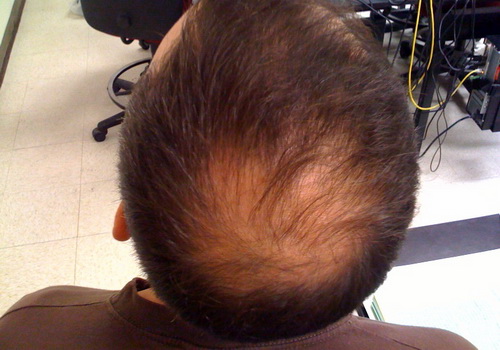
Biotin Deficiency
Unlike other vitamins, biotin is not commonly found in food items. It seems to be quite a scarce vitamin, only present (and in small quantities) in green leafy vegetables, Saskatoon berries and raw egg yolks. Additionnally, the bacteria present in our intestines (namely E. Coli) synthesize biotin. Though raw egg yolks are rich in biotin, it has been proven that egg whites (that are rich in avidin) considerably decreased our biotin content. This is because avidin tightly binds to biotin and makes it unavailable. With that said, eating raw eggs (as a part of a fortified protein smoothie for athletes for example) is the main cause of Biotin deficiency. The deficiency can present with hair loss, dermatitis, conjunctivitis and other similar topical symptoms. Neurological symptoms (loss of sensation, loss of memory, etc.) can also be observed.
- Important notification about information and brand names used in this slideshow!
- Photo courtesy of Welshsk by Wikimedia Commons : en.wikipedia.org/wiki/File:Alopecia.jpg
- en.wikipedia.org/wiki/Biotin_deficiency#Causes
- http://www.fitday.com/fitness-articles/nutrition/vitamins-minerals/6-signs-of-biotin-deficiency.html#b
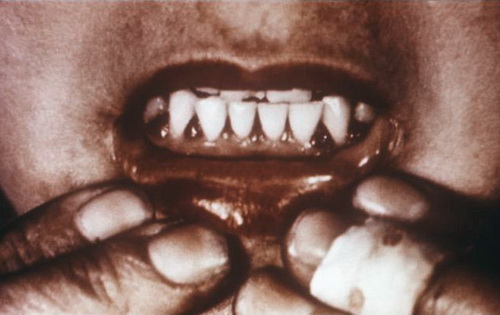
Scurvy: missing Vitamin C
With severe deprivation of Vitamin C from the diet, one can experience the symptoms of scurvy, which include bleeding gums and falling teeth. Vitamin C is an important co-factor for several biological functions, the most important one being the synthesis of collagen. The step in collagen synthesis in which Vitamin C intervenes is the hydroxylation of proline and lysine residues, contributing to the formation of the collagen molecule. Collagen is one of the most abundant proteins in our body, responsible for the elasticity of our skin, the tensile strength of our blood vessels, the flexibility of our cornea, and the strength of our gums! Hencefprth, vitamin C deficiency presents with severly bleeding gums with/without teeth brushing, slowly healing wounds, bleeding under the skin, anemia, etc.
- Important notification about information and brand names used in this slideshow!
- Photo courtesy of Ske by Wikimedia Commons : en.wikipedia.org/wiki/File:Scorbutic_gums.jpg
- www.medicalnewstoday.com/articles/155758.php

Lack of Vitamin D leads to Rickets
Rickets is defined as the softening of the long, short and flat bones secondary to a deficiency in Vitamin D. Note that softening of the bones could also occur due to other causes, but rickets is particularly caused by Vitamin D deficiency. The primaery source of vitamin D is our skin, IN fact, when our skin gets in contact with sunlight, the vitamin D present in our epidermis gets oxidized, and is made functional. Then, as it travels through the kidneys, it enhances the reabsorption of calcium, thus making it more available in the blood. Additionally, it enhances the absirptuon of calcium in the bones, making them stronger. This is how vitamin D metabolism is linked to Calcium. Children who are deficient with vitamin D may present with bone tenderness, muscle weakness (since the bones are not strong enough to support the muscles), food deformities (like bowed legs) as well as dental problems and hypocalcemia. If left untreated, the complications can be fatal.
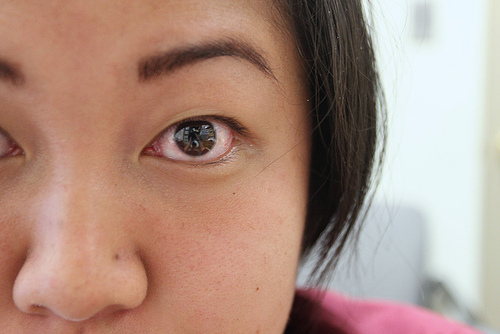
Ariboflavinosis or Vitamin B2 Deficiency
In other words, ariboflavinosis is the deficiency of vitamin B2, riboflavin. This vitamin is strongly involved in energy production processes that take place in our cells, thus a deficiency in riboflavin could severely alter the energy levels and proper functioning of all our internal metabolic reactions. Vitamin B2 provides our cells with energy transporters FADH and FADH2. This vitamin deficiency is very common in alcoholics or people with low-protein diets. Because it presents almost similar to pellagra, it can sometimes be referred to as “pellagra sin pellagra” (which means pellagra without pellagra). A typical person suffering of Vitamin B2 deficiency would experience blistering of the lips and corners of the mouth, tongue discoloration (magenta hue with visible atrophy), as well as anemia. Supplementation of Vitamin B2 can reverse the symptoms.

Vitamin K Deficiency and Coagulopathies
Vitamin K is a very important vitamin for the blood coagulation process. Because it is soluble in fat, it can easily be stored in our fatty tissue, and because of that vitamin K is not generally deficient (unless one has some inherited disorders). Vitamin K deficiency is more likely to occur in children compared to adults. Vitamin K is needed as a cofactor to activate the proteins involved in blood coagulation. Henceforth, if we are short of vitamin K, the first symptom that we will display will be bleeding: it could be subcutaneous (red to purplish patches or spots under the skin, large bruises, etc.) If the condition is left untreated, severe internal bleeding can occur and this could potentially be fatal for the patient.
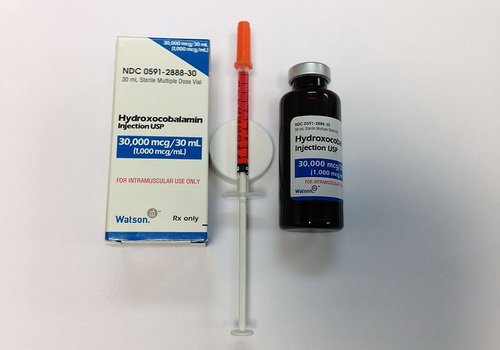
Hypocobalaminemia or Deficiency of Vitamin B12
Vitamin B12 is a key vitamin involved in two particular metabolic reactions in the human body: the conversion of homocysteine to methionine, and the formation of methylmalonylCoA. Methionine is an amino-acid necessary for the formation of DNA and RNA (thus at the center of functioning for all cells), as well as for the production of myelin sheath for nerves. Methylmalony CoA in turn is required for the krebs Cycle, an energy production cycle for all cells in the body (those that have a mitochondria, respiratory center). With that said, we understand how Vitamin is at the center of key physilogical reactions, and a deficiency in that vitamin would be truly detrimental. Vitamin B12 deficiency generally presents as anemia and neurological symptoms (troubles walking, memory problems, dementia, etc.) Supplementation with Vitamin B12 generally reverses the symptoms.
- Important notification about information and brand names used in this slideshow!
- Photo courtesy of Sbharris by Wikimedia Commons : en.wikipedia.org/wiki/File:Hydroxocobalamin_Injection.jpg

Paraesthesia: secondary to Vitamin B12 Deficiency
Paresthesia is a tickling, pricking, burning sensation felt on on’s skin, with no apparent physical reason. paresthesia can be caused by a variety of medical conditions, such as atherosclerosis, complications of hypertension and diabetes, etc. But when it is a result of a vitamin deficiency, the culprit is most likely to be vitamin B12. This vitamin is involved in a vaeriety of metabolic processes, including nerve function and peripheral nervous system balance. The loss of sensation in some areas of the body is caused by demyelination of the spinal cord, leading to loss of nerve function in the affected areas. Because animal meat is an exhaustive source of vitamin B12, vegans and vegetarians are the most at risk of vitamin B deficiency.
- Important notification about information and brand names used in this slideshow!
- Photo courtesy of Jonathan Weatherill-Hunt by Flickr : www.flickr.com/photos/weatherill-hunt/7609822102/
- listverse.com/2012/03/16/top-10-vitamin-deficiencies/

Night Blindness: a Key Symptom of Vitamin A Deficiency
Blindness can be inherited or acquired. If it is acquired and caused by a lifetstyle issue, odds are you are probably suffering from a vitamin deficiency, and the missing Vitamin is Vitamin A. You are probably wondering: what does Vitamin A have to do with vision? If you are asking yourself that question, you are not alone. In fact, vitamin A is involved in chemical reactions involving rhodopsin, the pigment that allows us to see in the night (dark lights). This is why vitamin A deficiency primarily presents with night blindness. Luckily, this symptom is reversible (if recognized early and treated early enough)
- Important notification about information and brand names used in this slideshow!
- Photo courtesy of Harry Koopman by Flickr : www.flickr.com/photos/mindfulness/290014573/
- www.webmd.com/vitamins-and-supplements/lifestyle-guide-11/supplement-guide-vitamin-a?page=2
- http://www.journalofoptometry.org/en/reversible-night-blindness-a/articulo/90208005/


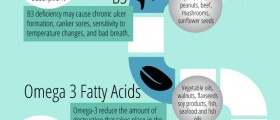










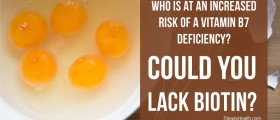


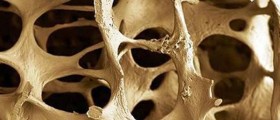


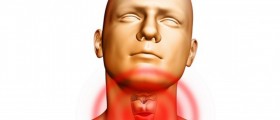

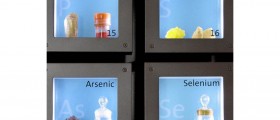





Your thoughts on this
Loading...